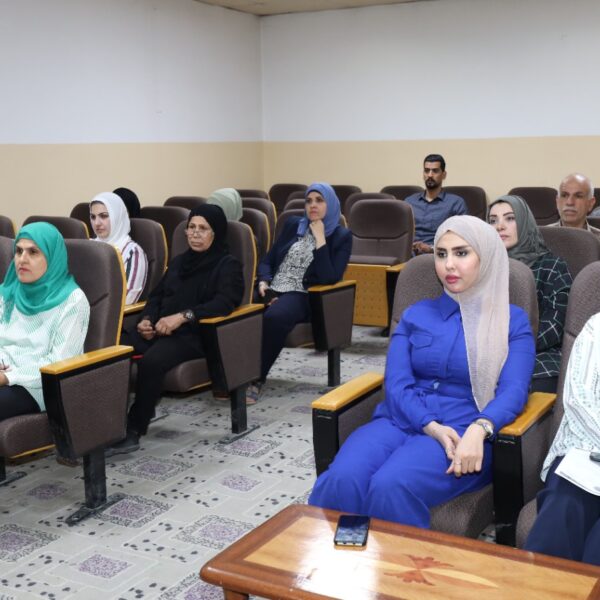The Public Law Branch at the College of Law at the University of Baghdad organized a symposium entitled (Brain-Based Education). The symposium was chaired by Assistant Professor Rasha Muhammad Jaafar and delivered by Huda Faeq Abdul Rahman, a lecturer in the Public Law Branch, in the presence of a number of lecturers and staff of the college on Sunday 05/07/2023 at the model courtroom in the college.
The symposium aims to identify the importance of brain-based education and when did this theory appear, in addition to standing on the time period in which this theory appeared, as the theory proved that learners who continue to develop themselves through reading and following technological developments account for 40% of the brain’s capabilities. The average educated individual uses 20%, while the ignorant or poorly educated person uses 10% of the brain.
The symposium included several axes, including the historical dimension of the theory of brain-based education, the basic concepts of the theory of brain-based education, the importance of brain-based education, and the characteristics of brain-based education.
The symposium came out with several recommendations, the most important of which is that the developments witnessed by science in various scientific and technical aspects resulted in changes in the field of education that led to rapid transformations in the educational process in all its dimensions, as this theory proved the vast capabilities of the brain and its high ability to store quickly.



